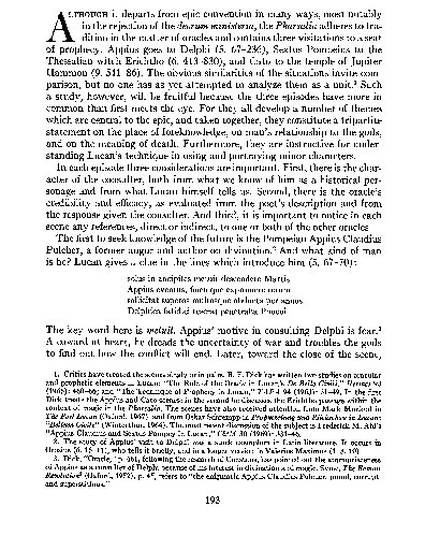
Although it departs from epic convention in many ways, most notably in the rejection of the deorum ministeria, the Pharsalia adheres to tradition in the matter of oracles and contains three visitations to a seat of prophecy. Appius goes to Delphi (5. 67-236), Sextus Pompeius to the Thessalian witch Erichtho (6. 413-830), and Cato to the temple of Jupiter Hammon (9. 511-86). The obvious similarities of the situations invite comparison, but no one has as yet attempted to analyze them as a unit.' Such a study, however, will be fruitful because the three episodes have more in common than first meets the eye. For they all develop a number of themes which are central to the epic, and taken together, they constitute a tripartite statement on the place of foreknowledge, on man's relationship to the gods, and on the meaning of death. Furthermore, they are instructive for understanding Lucan's technique in using and portraying minor characters. In each episode three considerations are important. First, there is the character of the consulter, both from what we know of him as a historical personage and from what Lucan himself tells us. Second, there is the oracle's credibility and efficacy, as evaluated from the poet's description and from the response given the consulter. And third, it is important to notice in each scene any references, direct or indirect, to one or both of the other oracles.
© University of Chicago Press, 1997.
Author Posting © University of Chicago Press, 1997. This article is posted here by permission of the University of Chicago Press for personal use, not for redistribution. The article was published in Classical Philology, Volume 72, Issue 3, July 1977.